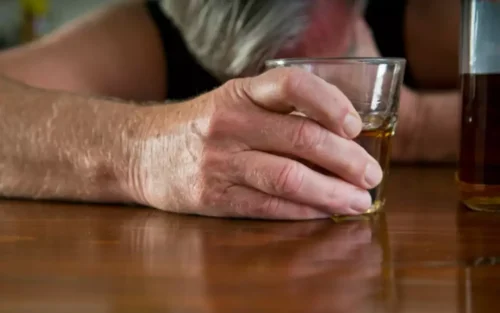
Alcohol’s suppressive effect on the brain’s neurological pathways responsible for breathing can also lead to respiratory issues, including an increased risk of pneumonia. Long COVID refers to persistent symptoms that occur more than three weeks after the initial COVID-19 infection. Once your liver function is affected, this will soon start to affect the rate at which it can metabolise other medicines, affecting your overall health and nutrition levels. Developing tolerance can be sped up if we repeatedly perform the same task or activity under the influence of alcohol. Access videos and webinars delivered by key experts in the field of allergy.
- For example, you may be allergic to red grapes in red wine, preservatives like sulfites, or to gluten in some beers.
- In this scenario you may need to drink five pints to get the same initial “buzz” you got from four pints.
- You may also have other symptoms, such as nausea, vomiting, diarrhea, dizziness, heart flutters, and a stuffy or runny nose.
- For example, an person who typically plays darts sober would likely experience impairment in performance if intoxicated.
Spotting the signs of an adverse reaction to alcohol
Some people may be unable to drink alcohol without experiencing immediate feelings of sickness, or they may develop this over time after a prolonged period of drinking. It is an inherited disorder, so it was passed down to you from your parents. Your face, neck and chest become warm and pink or red right after you drink alcohol. But the hallmark symptom of alcohol intolerance is flushing of the skin of the chest, neck and face.

What to expect from your doctor
Consulting with a healthcare provider is essential for an accurate diagnosis. Alcohol intolerance occurs when the body does not have the correct enzymes to break down the toxins in alcohol. The cause of alcohol-related sickness may develop for various medical reasons, such as an intolerance to alcohol or another ingredient present in the beverage.
What are the symptoms of alcohol intolerance?
- If you stop treatment too early your symptoms may come back and your condition may worsen.
- Sulfites are preservatives, and most countries permit their addition to alcoholic drinks such as beer and wine.
- Contact your doctor straight away if you are at all concerned about any of these side effects.
They often have a gene that is affected that is passed down in the family. But if they start drinking at their previous levels again, alcohol-related impairments in cognition and behaviour could return – but after having smaller amounts of alcohol. These changes in tolerance reflect the brain’s desensitisation (increased tolerance) and resensitisation (reduced tolerance) to alcohol at the cellular level. As pubs and bars reopen across England, many are excited about the opportunity to enjoy a drink with friends and family. While some evidence suggests alcohol consumption increased during lockdown, other reports suggest that over one in three adults drank less – or stopped altogether. If you have an alcohol allergy, you can develop an itchy rash, swelling, nausea, and even breathing trouble.
- When you drink alcohol, your liver first breaks down alcohol into a toxic chemical called acetaldehyde.
- While drinking alcohol is the most common trigger, other actions, like using cough syrup containing alcohol or alcohol-based hand sanitizer, may also trigger these symptoms.
- Understanding the signs, causes, and testing methods for alcohol intolerance is the first step toward addressing and managing this condition effectively.
- We publish material that is researched, cited, edited and reviewed by licensed medical professionals.
So, Dr Sim urges anyone who knows they’re allergic to certain foods, particularly grains, to be aware they could be in drinks, too. In other cases, people can be intolerant to the chemicals that give alcoholic drinks their flavour and colour, not the alcohol itself. Histamine (found in red wine) and salicylates (found in wine, beer, rum, and sherry), are common examples. Occasionally, a doctor may ask a person to consume alcohol in a medical setting and observe any reactions or symptoms.

Other tests
There are other potential causes, such as the onset of certain health conditions, especially some types of cancers, that can significantly impact the body’s ability to process alcohol. These conditions can reduce enzyme efficiency or cause changes in the body’s reaction to toxins, leading to a sudden intolerance to alcohol where none was evident before. While alcohol intolerance from health conditions is very rare, it is crucial to consider these factors and consult your doctor if you notice a sudden change in how your body reacts to alcohol.

Several anecdotal reports suggest that alcohol intolerance may be linked to long COVID, specifically the post-viral fatigue syndrome (PVFS) type. In fact, your body might have an inability to process other constituents of alcohol, such as histamine, yeast, grains, sulfites, or preservatives. In humans, this type of tolerance can be shown in the performance of well-practiced games played under the influence of alcohol. For example, an person who typically plays darts sober would likely experience impairment in performance if intoxicated. But if a alcohol intolerance person regularly drinks while playing darts, they may experience no alcohol-related impairment because of their learned tolerance. Rarely, severe pain after drinking alcohol is a sign of a more serious disorder, such as Hodgkin lymphoma.
Identifying Symptoms of Alcohol Intolerance
For a minor reaction, over-the-counter or prescription antihistamines may help reduce symptoms, such as itching or hives. The main treatment of both conditions is avoiding alcohol or the ingredients that trigger the allergy. For allergic reactions, taking an antihistamine like Benadryl for a mild to moderate reaction can help. Alcohol intolerance is a rare condition in which your body cannot process alcohol correctly, leading to a build-up of a chemical called acetaldehyde. High levels of acetaldehyde are what cause the unpleasant symptoms of alcohol intolerance. Those who still want to drink should moderate intake and choose alcoholic beverages with lower congener content (substances produced during fermentation) can help minimize reactions.
Symptoms of an alcohol allergy include rashes, itchiness, swelling and severe stomach cramps. Allergy symptoms are often more painful and uncomfortable than alcohol intolerance symptoms. In rare cases, if untreated, an alcohol allergy can be life-threatening.

However, acetaldehyde is still highly toxic and can significantly increase the risk of cancer. An allergy to alcohol has a very different cause from alcohol intolerance. Someone with an alcohol allergy has an allergic reaction when exposed to alcohol or to a component of alcohol. Often, it is not actually an allergy to alcohol itself but to a component of the alcohol, like grapes or hops. The symptoms are caused because the body’s immune system becomes overactive and attacks something found in the alcohol. For mild intolerances, you should either avoid alcohol, limit how much you drink or avoid certain types of alcohol with ingredients that may cause a reaction.













